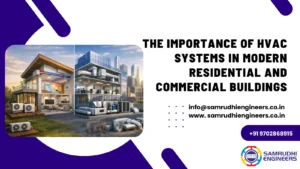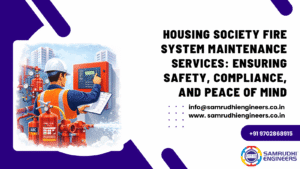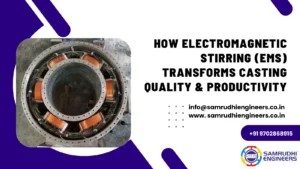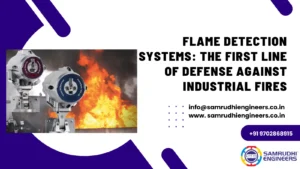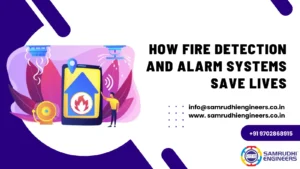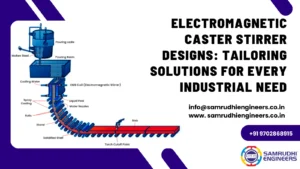Summary
Fire protection systems are critical to preserving lives and property in industrial, commercial, and residential spaces. This blog explores the components of fire protection systems, the importance of routine maintenance, inspection schedules, and how expert service providers like Samrudhi Engineers ensure long-term safety and compliance. Proper operation and timely servicing of these systems can mean the difference between disaster and disaster prevention.
Introduction
Fires are unpredictable and devastating. Whether in an industrial plant or a commercial facility, fire outbreaks can cause catastrophic damage. Fire protection systems are not just regulatory requirements—they’re critical safety measures that need expert handling, proper operation, and regular maintenance. At Samrudhi Engineers, we specialize in ensuring that fire protection systems work flawlessly when they are needed most.
What is a Fire Protection System?
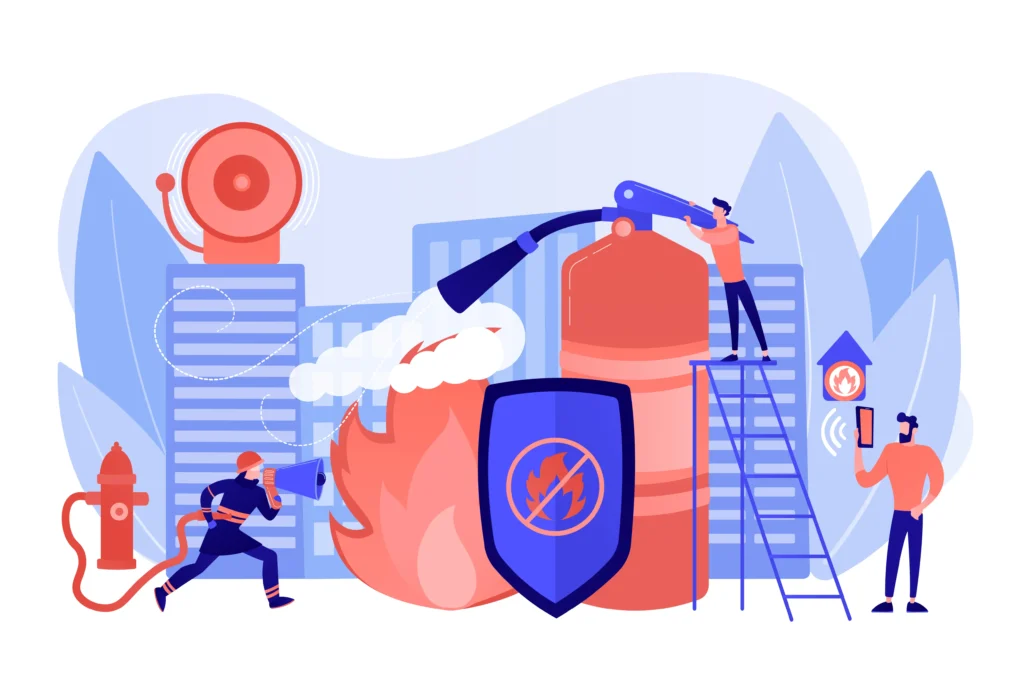
A fire protection system is a combination of mechanical and electronic systems designed to detect, suppress, and control fires. These systems may be passive (like fire doors and smoke barriers) or active (like sprinklers and fire alarms).
Types of Fire Protection Systems
Fire Sprinkler Systems
Automatically discharge water when fire or heat is detected. Ideal for commercial buildings, warehouses, and residential complexes.
Fire Suppression Systems
Used in environments where water can damage assets (like server rooms or kitchens). Common types include CO₂, FM-200, dry chemical, and foam systems.
Fire Alarm & Detection Systems
These systems detect smoke, heat, or gas and activate alarms to alert occupants and emergency services.
Portable Fire Extinguishers
Manual firefighting tools for small, localized fires. Regular inspections ensure they’re properly pressurized and placed.
Importance of Operation and Maintenance
Fire protection systems are only effective when they function properly. Regular maintenance is crucial for several reasons:
Compliance: Fire safety standards such as NFPA, IS codes, and local regulations require scheduled checks and servicing.
Functionality: Ensures the system activates in case of an emergency.
Longevity: Prevents premature system failure and costly repairs.
Insurance: Many insurers require regular system maintenance to validate claims.
Key Components Requiring Maintenance
Valves and Gauges
Control valves in sprinkler systems must be fully operational. Pressure gauges should reflect the correct pressure levels.
Control Panels
The brain of the alarm system. Needs routine testing for software, battery, and signal functionality.
Smoke and Heat Detectors
Detectors must be cleaned and tested for responsiveness.
Sprinkler Heads & Pipes
Check for corrosion, blockage, or physical damage that may prevent water discharge.
Maintenance Checklist and Frequency
Daily / Weekly Inspections
Check control valves for correct position
Monitor pump rooms and alarm indicators
Look for any visible leaks or damage
Monthly Tasks
Inspect fire extinguishers
Test fire alarm panels
Review logs for abnormal activity
Quarterly / Semi-Annual
Test emergency lighting
Clean smoke detectors
Simulate alarm system for functionality
Annual Maintenance
Full system inspection and performance testing
Replace worn-out parts
Hydrant and pump flow test
Common Issues in Fire Protection Systems
False Alarms: Caused by dirty sensors or faulty wiring.
Low Water Pressure: Can affect sprinkler system performance.
Blocked Sprinkler Heads: Dust or obstructions reduce water discharge.
Battery Failure: Backup power needs regular testing and replacement.
All these issues are preventable with a strong operation and maintenance routine in place.
Benefits of Partnering with Samrudhi Engineers
Samrudhi Engineers brings over a decade of experience in industrial and commercial maintenance. Our fire protection services offer:
- Certified inspection reports for audits
- Scheduled and emergency servicing
- Expertise in handling HT/LT panels and industrial pumps
- End-to-end fire system design, installation, and upkeep
Conclusion
Fire safety is not a one-time installation—it’s a continuous responsibility. A functional fire protection system can be the thin line between minor damage and a catastrophic loss. With the right operation protocols and proactive maintenance by professionals like Samrudhi Engineers, your facility stays compliant, protected, and prepared for emergencies.
FAQs
Without maintenance, these systems may fail during an emergency, putting lives and assets at risk. Maintenance ensures reliability and compliance with fire safety norms.
Routine checks can be daily or weekly, while system testing and inspections should be done monthly, quarterly, and annually as per NFPA or IS standards.
Absolutely. We specialize in operation and maintenance of industrial fire systems including fire pumps, hydrants, sprinkler networks, and more.
Yes, our team consists of certified professionals trained in fire system safety, detection, suppression systems, and regulatory compliance.

